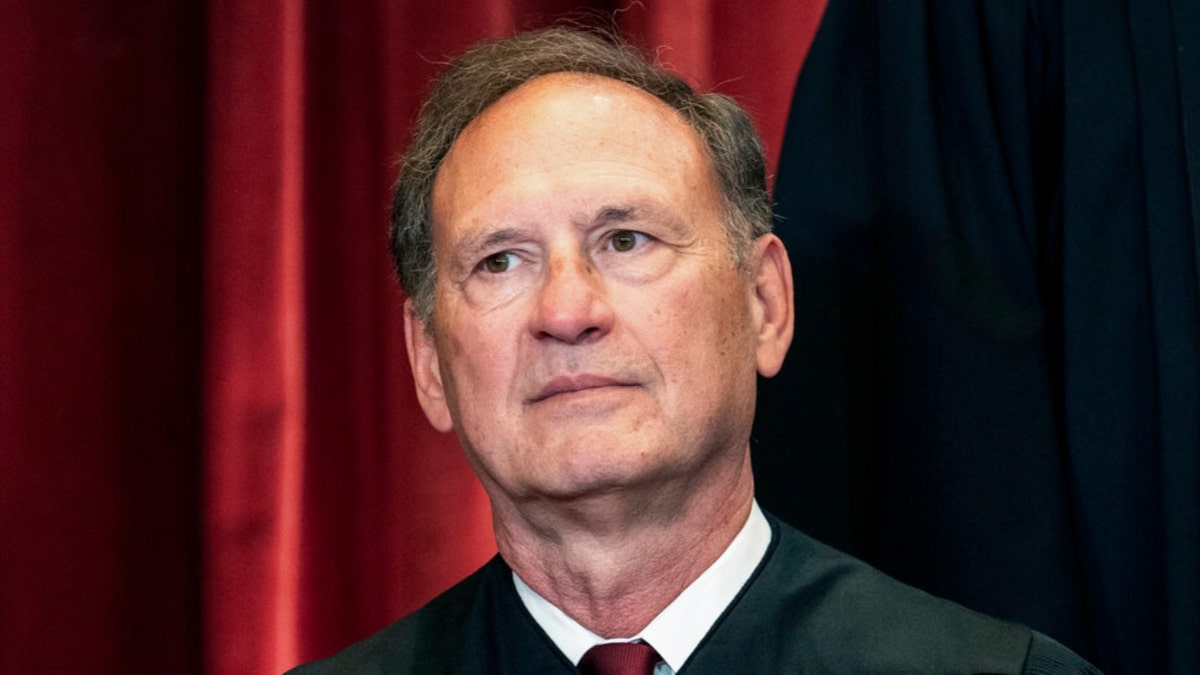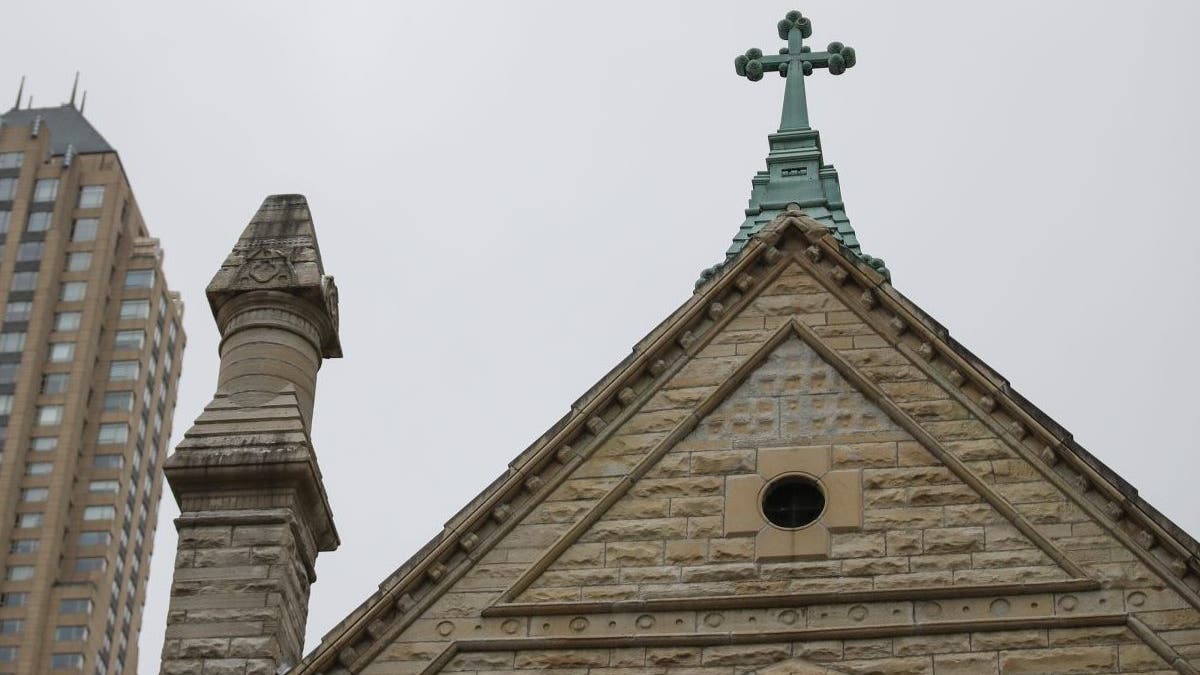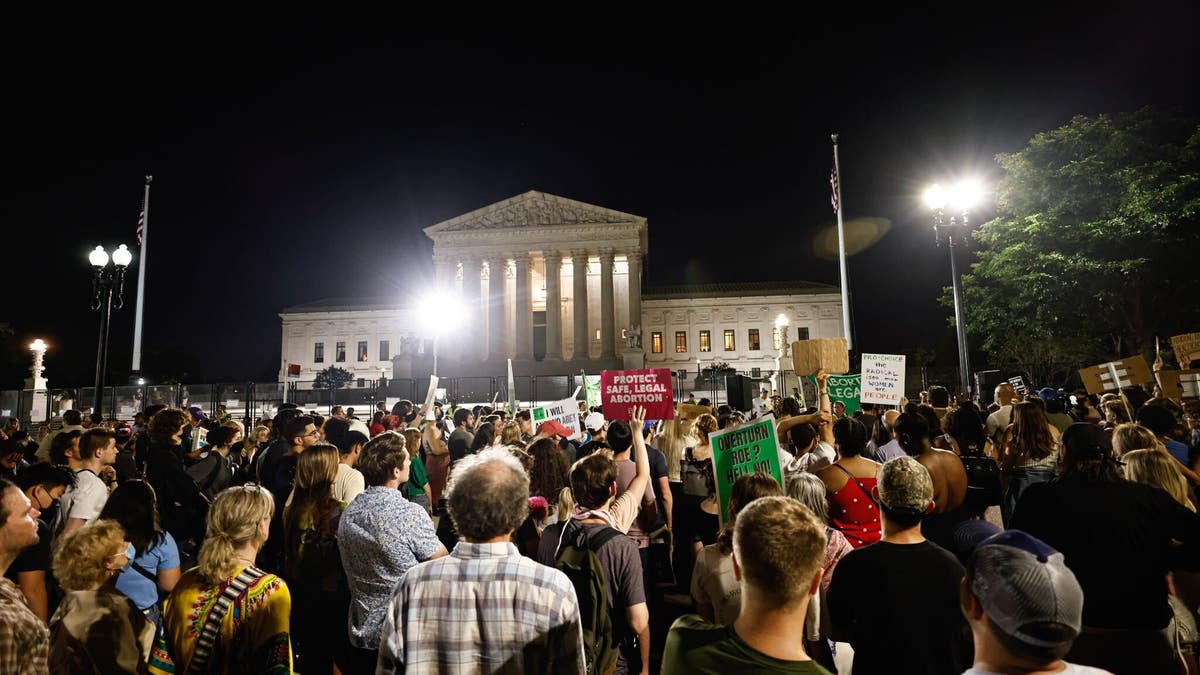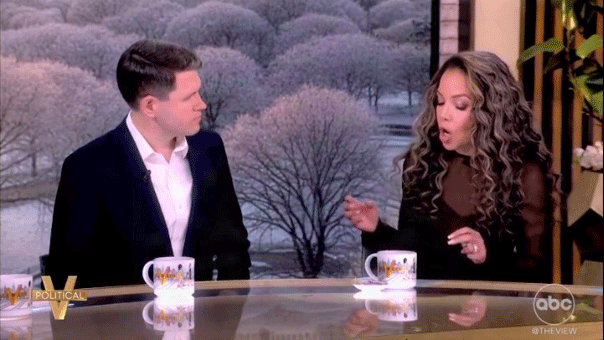
Demonstrators march and gather near the state capitol following the Supreme Court's decision to overturn Roe v. Wade in Austin, Texas. Texas Attorney General Ken Paxton is being sued by health care providers over allegedly threatening ot prosecute abortion providers. (AP)
A New York Times guest essay written by Pulitzer Prize winning reporter Linda Greenhouse asserted that the basis on which Roe v. Wade was reversed by the Supreme Court was "religious doctrine," not constitutional law.
Greenhouse began her piece with an illustration of how she organizes her research and work on Supreme Court terms. "My own way of keeping track of a Supreme Court term is to log each of the term’s decisions on a chart labeled by category: criminal law, administrative law, speech, federalism and so on," she claimed.
"For this past term, one of my charts was of course labeled ‘abortion,’ and naturally that’s where I recorded Dobbs v. Jackson Women’s Health Organization, the decision that overturned Roe v. Wade," she added.
Upon further review and in order to prove a point, she said she later realized that "I had put Dobbs in the wrong place. Along with the decision about the praying football coach and the one requiring Maine to subsidize parochial school tuition, Dobbs belongs under ‘religion.’"

FILE - Associate Justice Samuel Alito sits during a group photo at the Supreme Court in Washington, April 23, 2021. The Supreme Court has ended constitutional protections for abortion that had been in place nearly 50 years — a decision by its conservative majority to overturn the court's landmark abortion cases. ((Erin Schaff/The New York Times via AP, Pool, File))
Greenhouse immediately jumped on rending the notion that the conservative-majority court reversed the "constitutional right to an abortion" because Roe was a problematic legal ruling. "Does anyone really think it was motivated by disapproval of the court’s reliance in Roe v. Wade on substantive due process, an interpretation of the 14th Amendment that accords meaning to the word ‘liberty’ in the Due Process Clause?"
She then mocked people who assert that the right to abortion was never enshrined in the Bill of Rights. "Is there anyone who believes that if only the Constitution had included the word ‘abortion,’ the anti-abortion movement would have failed to gain political traction?"
And she flatly declared, "No one really buys the argument that what was ‘egregiously wrong’ with Roe v. Wade, to quote the Dobbs majority, was the court’s failure to check the right analytic boxes."
Though progressive legal experts, including the late Supreme Court Justice Ruth Bader Ginsburg, have bashed the judicial standing of Roe v. Wade. Ginsburg stated that Roe v. Wade was a "heavy-handed judicial intervention [that] was difficult to justify and appears to have provoked, not resolved, conflict."
Finally, Greenhouse made her central point, stating, "It was not constitutional analysis but religious doctrine that drove the opposition to Roe."

Recent New York Times guest essay argues that Roe was overturned thanks to the justices' religious convictions. (Photo credit should read KAMIL KRZACZYNSKI/AFP via Getty Images)
Ratcheting up the hyperbole, she also said, "And it was the court’s unacknowledged embrace of religious doctrine that has turned American women into desperate refugees fleeing their home states in pursuit of reproductive health care that less than a month ago was theirs by right."
"Justice Alito took pains to present the majority’s conclusion as the product of pure legal reasoning engaged in by judges standing majestically above the fray of Americans’ ‘sharply conflicting views’ on the ‘profound moral issue’ of abortion," Greenhouse claimed, arguing that the fact that he called abortion a "moral issue, gives away more than members of the majority, all five of whom were raised in the Catholic church, may have intended."
Citing pro-choice minister John Nelson, the author wrote, "Describing his own response to the decision as one of ‘fury’ the pastor said that the justices in their ‘concern for the lives of fetuses’ overlooked the ‘lived experience’ of women. ‘To show no regard for a lived experience is immoral,’ he wrote."
CLICK HERE TO GET THE FOX NEWS APP
Greenhouse claimed that in "all those pages" of the court’s opinion on Dobbs, "there is surprisingly little actual law. And women, as I have observed before, are all but missing. It is in paragraphs scattered throughout the opinion that the fetus shines."
"In recognition that it is now well past time to challenge that norm, I’ll take my own modest step and relabel Dobbs for the religion case that it is, since nothing else explains it," Greenhouse proclaimed, concluding her piece.

Protesters gather outside of the Supreme Court building after the historic ruling to overturn Roe vs. Wade. (Joshua Comins/Fox News)










































